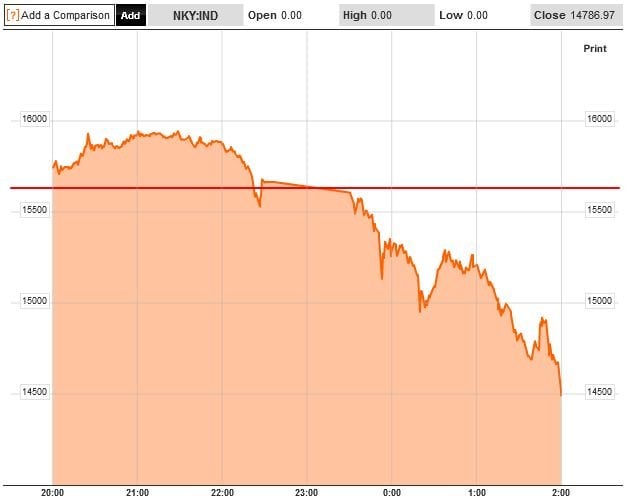“West Texas Intermediate headed for its biggest weekly drop in more than a month amid signs of rising U.S. oil inventories and a global economic slowdown.
Futures slid as much as 0.8 percent in New York. Prices may decline next week amid speculation that U.S. fuel supplies will be sufficient to meet summer demand after factory output in China shrank for the first time in seven months, according to a Bloomberg News survey. Goldman Sachs Group Inc. recommended selling WTI and buying Brent contracts for December 2014 as supplies accumulate on the U.S. Gulf Coast.
“U.S. crude stocks are very well-filled, and there’s some disappointing economic data from China,” said Hannes Loacker, an analyst at Raiffeisen Bank International AG (RBI) in Vienna, who estimates WTI will average $92 this quarter. “It’s not the best cocktail for crude.”
WTI for July delivery fell as much as 78 cents to $93.47 a barrel in electronic trading on the New York Mercantile Exchange and was at $93.55 as of 12:02 p.m. London time. The volume of all contracts traded was 0.5 percent below the 100-day average. Prices are 2.6 percent lower this week, the most since the seven days ended April 19.
Brent for July settlement fell 24 cents to $102.20 a barrel on the ICE Futures Europe exchange. The European benchmark was at a premium of $8.67 to WTI compared with $8.19 yesterday.
The spread is still set to narrow toward $5 a barrel in the third quarter as new pipeline capacity to move crude out of Cushing causes stockpiles there to decline “substantially,” Goldman said.

